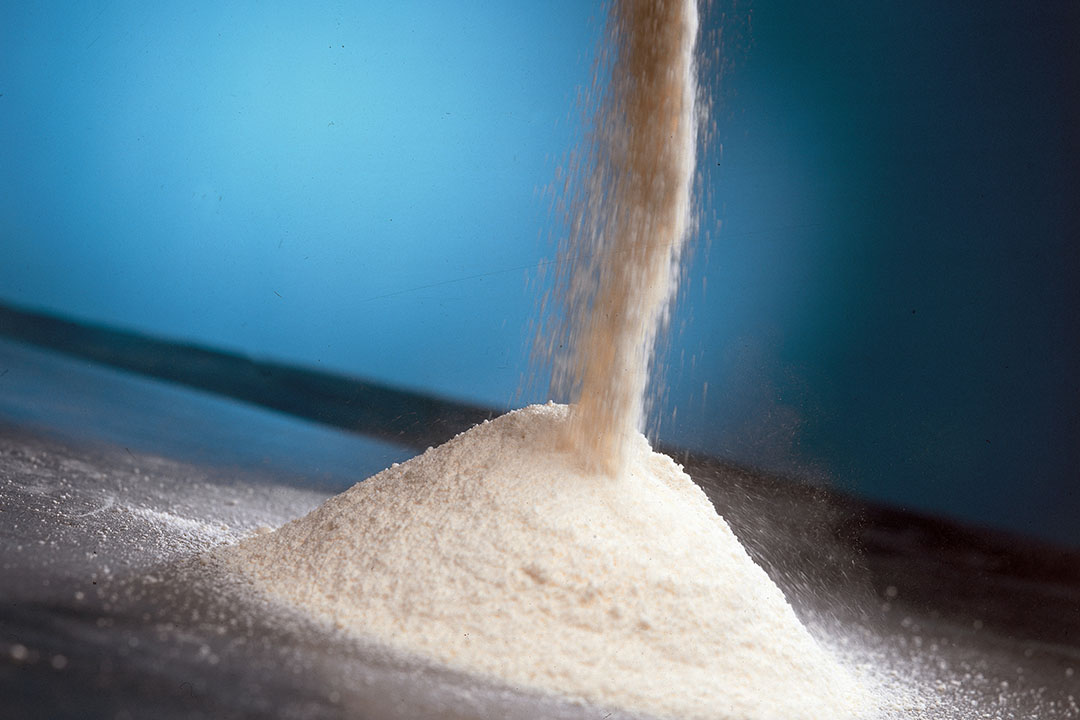Belarus aims for large-scale feed additives exports to EU

Belarus National Biotechnological Corporation (BNBC) is aiming to be able to supply 5% to 10% of the European feed amino acids imports in the foreseeable future, Ilya Snopkov, BNBC’s director for strategic development and planning told to a state-owned news channel.
BNBC is currently building 14 feed and feed additive plants in Minsk Oblast. The overall designed production performance of the new complex would be equal to 1 million tonnes of feed per year and nearly 200,000 tonnes of various feed amino acids.
It would not be hard [to conquer the market share], especially since we have already concluded some agreements with big consumers and they have signed preliminary contracts for the purchasing of feed additives of Belarus-origin,” – Ilya Snopkov, BNBC.
The new complex is designed to manufacture a broad range of feed additives and amino acids, including:
- 64,700 tonnes of lysine,
- 5,900 tonnes of L-threonine,
- 1,300 tonnes of L-tryptophan,
- 23,000 tonnes of gluten,
- 99,000 tonnes of lysine-containing feed,
- 15,000 tonnes of ammonium sulfate crystals and
- 10,000 tonnes of liquid ammonium sulfate.
In addition, to meeting the domestic demand in those feed additives, BNBC expects to establish large-scale export supplies with the total value of around $ 300 million per year, Snopkov said. The primarily target is to conquer from 5% to 10% of the feed amino acids market in the European Union, which in Belarus considers a premium market, Snopkov said. “It would not be hard [to conquer the market share], especially since we have already concluded some agreements with big consumers and they have signed preliminary contracts for the purchasing of feed additives of Belarus-origin,” Snopkov added.
In BNBC, we believe that by launching this project, we would be able to improve quality and cut costs for meat production in Belarus,” – Ilya Snopkov, BNBC.
There are no similar projects with the full biotechnological cycle in the world, Snopkov stressed. By implementing this project, in terms of feed industry development Belarus would be able to reach the level of the most advanced countries, such as the US, Japan, South Korea and China, he added. The project is also very important for the domestic livestock industry, Snopkov said. As currently, the vital amino acids are imported into the country. “In BNBC, we believe that by launching this project, we would be able to improve quality and cut costs for meat production in Belarus,” Snopkov explained.
Speaking earlier this year BNBC deputy director Nadezhda Kotkovets promised that with the cheap amino acids available on the domestic market, the export opportunities of the Belarus meat production would significantly grow. Kotkovets explained that “Belarus food products have a good reputation on the overseas market,” but the problem was that they “remained rather expensive”. BNBC earlier reported that it planned to make the new production complex operational in 2020. It is expected that it would take a few years for the project to reach full designed production performance. The overall investment cost of the complex is $ 700 million. BNBC targets to export feed and feed additives not only to the European Union, but also to Russia, Ukraine and China.












